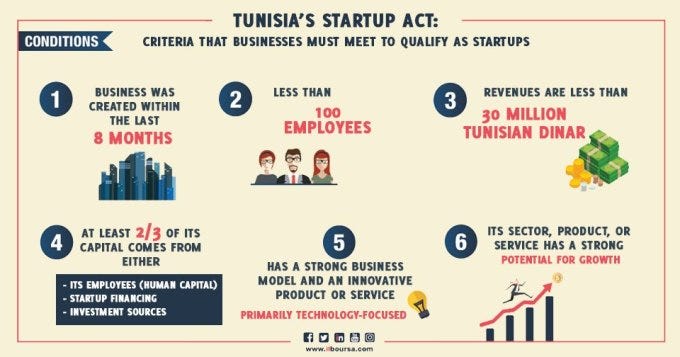Tunisia is not allowing the coronavirus pandemic to disrupt its governance processes. The country’s ministry of Communication Technologies and Digital Transformation has granted, pursuant to Tunisia ‘s Startup Act, 16 startup labels and 10 pre-labels during the first certification ceremony for startups to be held online.

Here Is All You Need To Know
- During the ceremony, the department assured that the March 2020 session of the “Startup Act” went smoothly, thanks to a full-digital journey.
- The first E-labeling ceremony for Startups took place in the presence of members of the college and the executive team of the “Startup Act”, as well as those responsible for the new Labeled Startups.
- During this E-ceremony, the Minister of Communication Technologies and Digital Transformation, Mohamed Fadhel Kraiem, welcomed the contribution of Startups in the national effort to fight against the Corona virus through their digital solutions and applications , some of which are already used in vital sectors such as the health sector.
- The Minister took the opportunity to present his best wishes to the Tunisian community of Startups on the occasion of the 1st anniversary of the “Startup Act” officially launched on April 05, 2019 and which already has 12 labeling sessions, 416 applications via the Startups portal, 248 Labeled Startups and 42 Pre-labels granted not yet transformed.
- He praised the commitment of the College of Startups and the executive team of the “Startup Act”, comprising government officials and volunteers from the private sector and civil society.
Also Read: South African Real Estate Startups Shock Other African Startups With This New Move

The Tunisian Startup Act Has Given Startups In The Country A Voice
Unarguably, Tunisia leads other African countries in bold startup legislations. The Tunisian Startup Act, passed in May, 2018, puts in place the following measures in favour of startups:
- Tunisian Startup Act defines startups as an entity having legal existence not exceeding eight (08) years from the date of its constitution.
- More than two-thirds (2/3) of Tunisian startups’ capital must be natural persons, venture capital investment companies, collective investment funds, investment, seed money and any other investment body according to the legislation in force or by foreign Startups to qualify as startups under the Act.
- The business model envisaged by the Tunisian Startup Act is one that is highly innovative, utilizing cutting-edge technology.
- Under the Act, any individual promoter of a Startup, public agent or employee of a private company, may benefit from the right to Startup Leave for creation of a Startup for a period of one year renewable once
- Any promoter of a Startup may benefit from a Startup scholarship for a duration of one (01) year. Only three (03) shareholders and full-time employees in the relevant Startup may however benefit from the scholarship awarded.
- Young graduates who create startups are free from taxation for three years.
- The profits from the sale of the securities relating to the shares in the Startups are exempt from the capital gains tax.
- Startup labels are also part of the innovations Tunisia’ s Startup Act has introduced.
Charles Rapulu Udoh

Charles Rapulu Udoh is a Lagos-based lawyer who has advised startups across Africa on issues such as startup funding (Venture Capital, Debt financing, private equity, angel investing etc), taxation, strategies, etc. He also has special focus on the protection of business or brands’ intellectual property rights ( such as trademark, patent or design) across Africa and other foreign jurisdictions.
He is well versed on issues of ESG (sustainability), media and entertainment law, corporate finance and governance.
He is also an award-winning writer.
